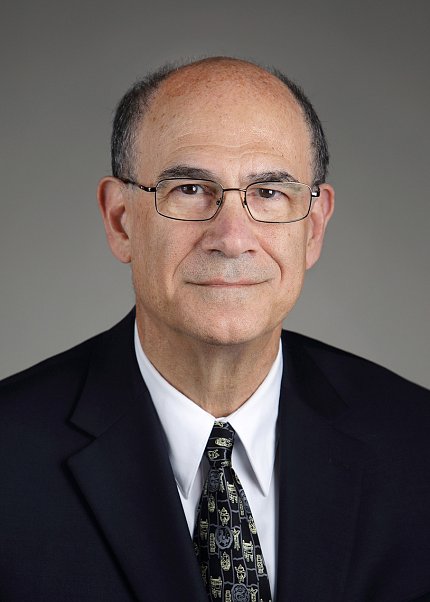NINDS’s Hallett Honored by AINA and China

Dr. Mark Hallett, chief of the Medical Neurology Branch and the human motor control section in the Division of Intramural Research, NINDS, recently received the Association of Indian Neurologists in America (AINA) Lifetime Achievement Award at the American Academy of Neurology annual meeting in Vancouver, British Columbia.
The award—which is made possible through a grant from AINA in conjunction with the American Brain Foundation—annually recognizes a leader in the field of neurology. Hallett was honored for helping neurologists of Indian origin excel in neurology and for promoting innovation and research in the field of neurology.
Hallett also recently received the National Friendship Award and medal from the Chinese government. Approximately 50 foreign experts get the award each year in various areas of endeavor. Liu Yanguo, deputy director of the State Administration of Foreign Expert Affairs, presented the award in Beijing.
Hallett made his first trip to China in the late 1990s. Since then he has returned to the country many times to work with Chinese scientists to help improve treatments for Parkinson’s disease and other movement disorders. He was awarded the Friendship honors for his work with Capital Medical University, Xuanwu Hospital and more than 10 other domestic universities and hospitals to advance the diagnosis and treatment of Parkinson’s. According to the Washington Post China Watch supplement, “The Friendship Award is the highest honor the Chinese government presents to foreigners who have made significant contributions to China’s social and economic development.”
Hallett earned his medical degree from Harvard University and received his neurology training at Massachusetts General Hospital. He had fellowships in neurophysiology at NIH and in the department of neurology at the Institute of Psychiatry in London.
Before joining NIH in 1984, Hallett served as chief of the Clinical Neurophysiology Laboratory at Brigham and Women’s Hospital in Boston and associate professor of neurology at Harvard Medical School. His current research focuses on understanding the physiology of normal human voluntary movement and the pathophysiology of different movement disorders.
